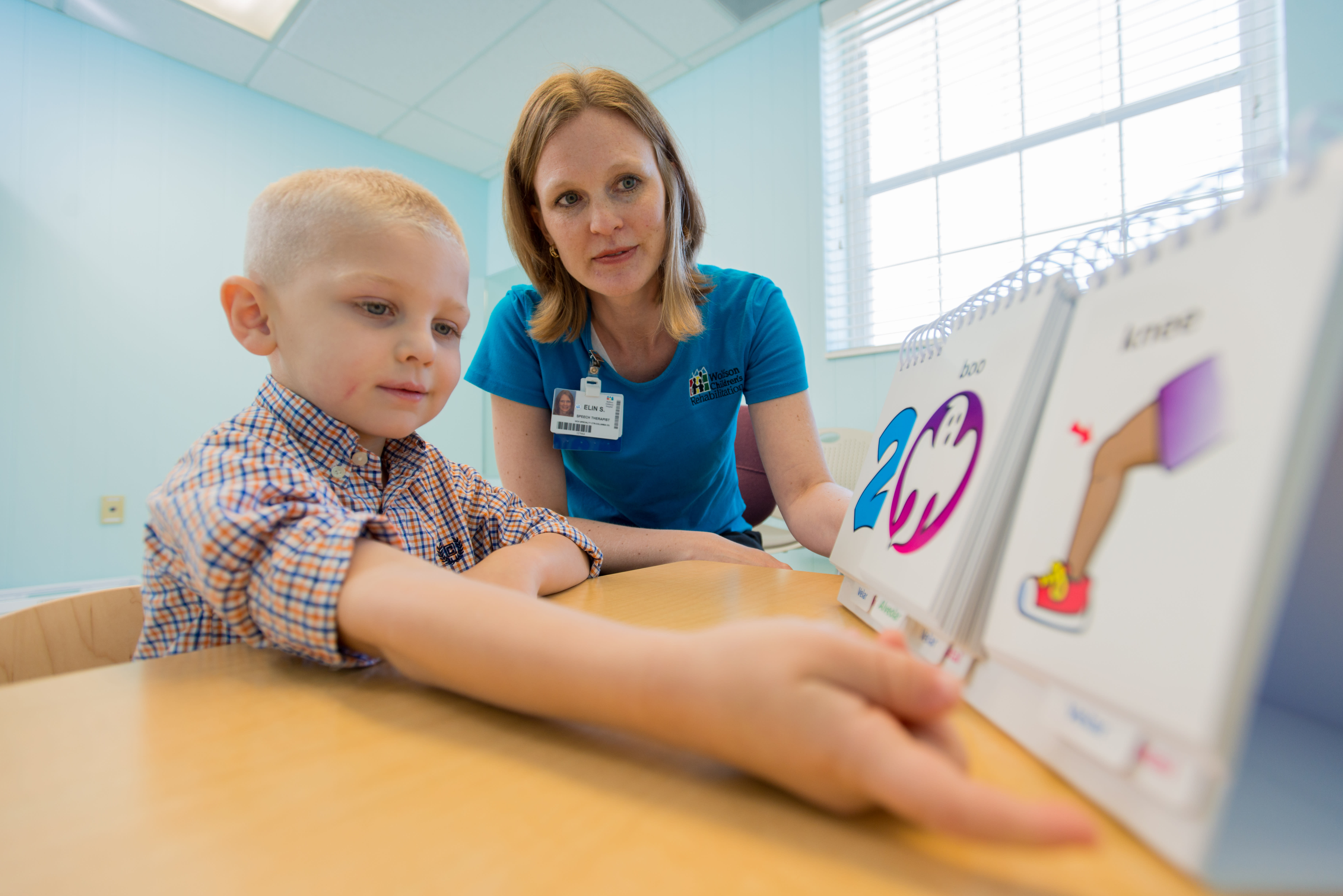Why Early Intervention with a Speech Pathologist is Crucial for Children
Wiki Article
How a Speech Pathologist Can Assist Improve Communication Skills
Efficient communication is a cornerstone of personal and professional success, yet many individuals face obstacles that prevent their capacity to share themselves plainly. A speech pathologist is geared up to deal with these obstacles with targeted evaluation and intervention techniques tailored per person's requirements. By using evidence-based restorative methods, they not only function to boost speech and language conditions however also enhance general communicative proficiency. Understanding the multifaceted duty of a speech pathologist exposes how their proficiency can transform lives, welcoming a more detailed exam of the certain methods and end results linked with their method.Recognizing Interaction Disorders
Recognizing communication conditions is important for identifying exactly how they impact people' ability to reveal themselves and engage with others. Communication problems encompass a variety of problems that impact speech, language, and social communication, typically preventing effective interaction. These problems can occur from different variables, consisting of neurological conditions, developing delays, physical impairments, or emotional issues.Speech disorders may show up as troubles in voice, expression, or fluency production, affecting how words are obvious or talked. Language conditions, on the various other hand, include difficulties in understanding or utilizing language, which can impede both verbal and non-verbal communication. Social interaction disorders are characterized by difficulties in the pragmatic facets of communication, such as taking kip down conversation or understanding social cues.
The repercussions of communication disorders are extensive, affecting not only the person's capability to convey feelings and thoughts but also their social relationships, instructional chances, and general high quality of life. Awareness of these disorders can foster compassion and assistance, urging reliable techniques for interaction and interaction. Comprehending the complexities of communication problems is an important action in the direction of promoting inclusivity and attending to the requirements of those influenced.
Role of a Speech Pathologist
Speech pathologists often play a crucial function in treating and detecting interaction disorders, using a series of evidence-based methods tailored per person's needs. These professionals function with individuals across the lifespan, from youngsters with speech delays to grownups recovering from strokes or terrible mind injuries. Their knowledge incorporates a variety of communication problems, consisting of articulation, fluency, voice, and language conditions.In restorative setups, speech pathologists make use of organized interventions made to improve communication skills. They might execute strategies such as speech exercises, language video games, and social communication training to help with renovations in expressive and responsive language capabilities. Speech Pathologist. Furthermore, they enlighten customers and their families concerning reliable communication methods and adaptive techniques to navigate daily communications
Beyond straight treatment, speech pathologists team up with various other medical care caregivers, specialists, and teachers to make sure a thorough method to treatment. They support for customers by supplying sources and support, enabling individuals to attain their communication goals and boost their total lifestyle. As specialists in the field, speech pathologists are crucial in fostering effective communication, promoting independence, and improving social engagement for those with interaction challenges.
Evaluation and Diagnosis Refine
The evaluation and medical diagnosis procedure carried out by speech pathologists generally includes a detailed examination to determine interaction problems properly. This process begins with an in-depth medical history, where the medical professional collects important info concerning the person's medical, educational, and developmental history. Comprehending the context of the individual's communication difficulties is crucial for an exact diagnosis.Adhering to the medical this contact form history, speech pathologists utilize standardized examinations and informal assessments to evaluate different elements of communication, consisting of speech audio manufacturing, language comprehension, expressive language, and social interaction skills. These evaluations are customized to the person's age and details worries, giving useful information for evaluation.
Monitoring is also a critical element of the evaluation process, as it allows the medical professional to see firsthand just how the individual communicates in natural settings. Additionally, interviews with member of the family and educators can offer understanding into the person's interaction difficulties across different settings.
As soon as the examination is full, the speech pathologist synthesizes the findings to determine a diagnosis and suggest suitable treatments. This comprehensive evaluation process makes certain site here that people obtain targeted assistance customized to their special interaction needs, laying the foundation for effective restorative techniques.
Restorative Techniques and Strategies
Numerous restorative methods and methods are utilized by speech pathologists to resolve a range of communication problems efficiently. One widely made use of technique is expression treatment, which concentrates on dealing with speech seems through rep and visual cues. This technique is particularly helpful for people with speech audio conditions.One more reliable technique is language intervention, which enhances both receptive and meaningful language skills. This might involve interactive activities that promote vocabulary development, sentence structure understanding, and conversational abilities. Additionally, speech pathologists usually utilize social abilities educating to enhance pragmatic language abilities, enabling people to navigate social interactions a lot more efficiently.
Fluency shaping and stuttering adjustment strategies are especially designed to assist those experiencing fluency problems. These strategies assist customers establish smoother speech patterns and manage the emotional and physical elements of stuttering.
Additionally, alternate and augmentative communication (AAC) systems are used for individuals with serious communication disabilities. These systems, which can consist of gestures, symbols, or digital devices, offer necessary assistance for effective interaction.
Advantages of Speech Therapy

Furthermore, speech treatment can aid in developing essential listening and comprehension abilities, promoting much better interaction in discussions. Individuals with cognitive-communication conditions can also benefit, as therapy concentrates on reinforcing memory and analytic capabilities, necessary for efficient interaction.
One more crucial aspect is the psychological assistance given during treatment sessions. Speech pathologists produce a risk-free setting, encouraging people to get over anxiousness and irritation pertaining to their communication concerns. This support can bring about enhanced self-esteem and total mental health.
In addition, early treatment with speech treatment can prevent additional complications, guaranteeing that people reach their complete communicative potential. In general, the benefits of speech treatment prolong beyond simple speech enhancement, positively affecting various measurements of life view it now for those affected by interaction problems.
Final Thought
In summary, speech pathologists play a crucial role in addressing communication disorders with analysis, diagnosis, and customized restorative treatments. By using evidence-based methods, these specialists improve individuals' speech and language abilities, fostering enhanced clarity, fluency, and social interaction abilities. The benefits of very early intervention highlight the value of looking for help from speech pathologists, as their knowledge can considerably boost communicative possibility, inevitably resulting in greater success in both expert and individual spheres.
Speech pathologists often play a vital role in dealing with and diagnosing interaction conditions, using an array of evidence-based techniques customized to each individual's needs. As experts in the area, speech pathologists are necessary in fostering effective interaction, promoting independence, and boosting social involvement for those with communication obstacles.

Report this wiki page